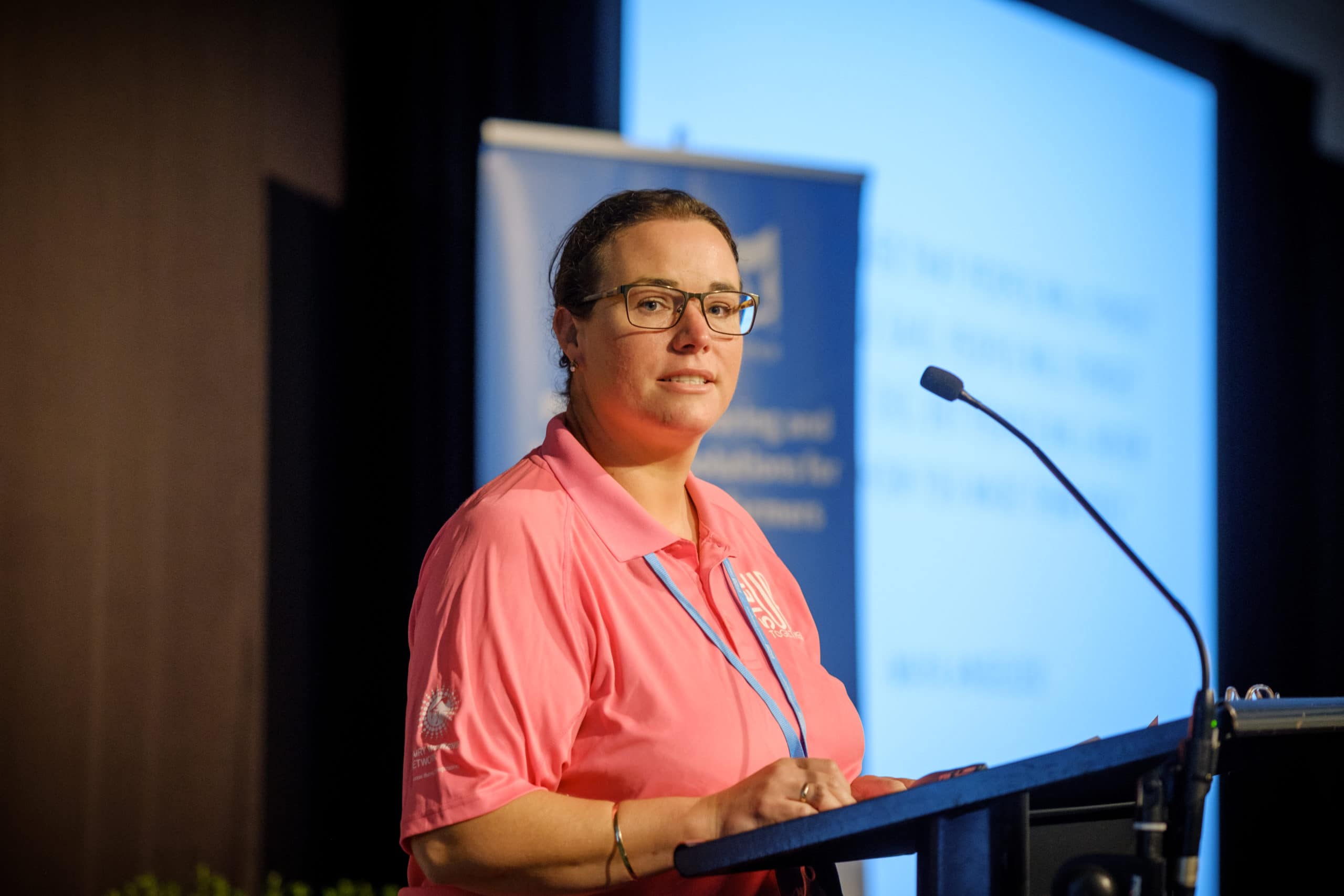News

National Volunteer Week 2021: Lessons from Nicola Bryant
Usually a behind-the-scenes volunteer, Nicola Bryant – a community-focused mother of two and a contract milker from Taranaki – showed just how much confidence volunteering can give you when she stepped up into the Regional Chair role for the Allflex and DWN2021 Taupo Conference in April.
While passionate about event organising, Nicola’s preference for background volunteering made her hesitant to apply as she thought other women with more experience would put themselves forward. However, her passion was rewarded when she was nominated for the role by her Hub Leader, Alison Ferris.
A shoulder-tap from Renee Fa’atui, National Conference Chair, an outline of the support she would receive and a little pep-talk with herself turned uncertainty into a proud and humble ‘yes’ – resulting in a conference filled with fresh ideas, pushed boundaries and a focus on what Nicola knew worked for North Island farmers, rather than what had been done in the past.
Here are a few of the lessons Nicola learnt throughout her Regional Chair volunteer role, and many others.
- The right volunteer roles should reflect and reward your priorities.
Recognise what’s important to you and choose roles that support your goals. Nicola’s priorities are her family and her farm business; her Regional Leader and Regional Conference Chair roles have given her opportunities to network and build relationships that will help her take her business that extra step, and get her name known in the wider dairy industry. As an expat from South Africa she is also passionate about building relationships and a community around her family, so she actively gets involved in her daughters’ extracurricular activities and still volunteers at the local Playcentre, where she first built her support network in New Zealand. In choosing her volunteer roles, Nicola always considers how the roles can help her to expand her support network, and whether she can give other women the same chance for connection.
- Say no to things that don’t excite you – but at the same time, seize opportunities.
At the same time as she was volunteering in the Regional Conference Chair role, Nicola was attending meetings as Treasurer on the Te Kiri Hall Committee and finding funding; organising a women’s coffee group for the hall every month to six weeks; mentoring for PrimaryITO; organising, shopping and cooking for community burger night once a month, ranging from 60-115 people; organising and hosting Dairy Women’s Network regional events in her role as Taranaki Regional Leader; helping with events through her daughters’ school PTA; acting as a parent help for any extracurricular activities her daughters took on, including Surf Lifesaving; and accepting a volunteer Trustee position with Rural Razzle, managing the Rural Halls portfolio.
Nicola says she almost turned down the Rural Razzle trustee position because she already had a lot on her plate, but realised there was no harm in saying yes and seeing what she could do in the role. If it’s not for you, at least you’ve given it a go and contributed skills and knowledge to a group that may not have had them previously. “Trish Rankin said to me once that if you do what you love, it’s not a chore and you don’t feel like you’re busy or inundated with work. I’m learning to do what I enjoy and let other things go that I don’t enjoy anymore. And If nobody had shoulder-tapped me for the conference chair role, I wouldn’t have done it. Saying yes to that experience has taught me to believe in myself more.”
- Ask for help and be willing to accept help.
We all struggle with this one – it’s hard to admit to ourselves we need help, but it can be even harder to relinquish control and let others lend a hand. But when you’re juggling a lot it’s natural that some things have to give. If, like Nicola, you don’t like asking for help, it might be a matter of putting boundaries in place and stipulating that a specific time of the week will be dedicated to other work. While nobody will say no to giving help, people are always respectful of clearly outlined boundaries – especially when it’s a passion project for you. Nicola’s key takeaway for this lesson: “You have to remember that it’s not the end of the world if something gets done tomorrow.”
What are some of the lessons you’ve learnt from volunteering in your community?














